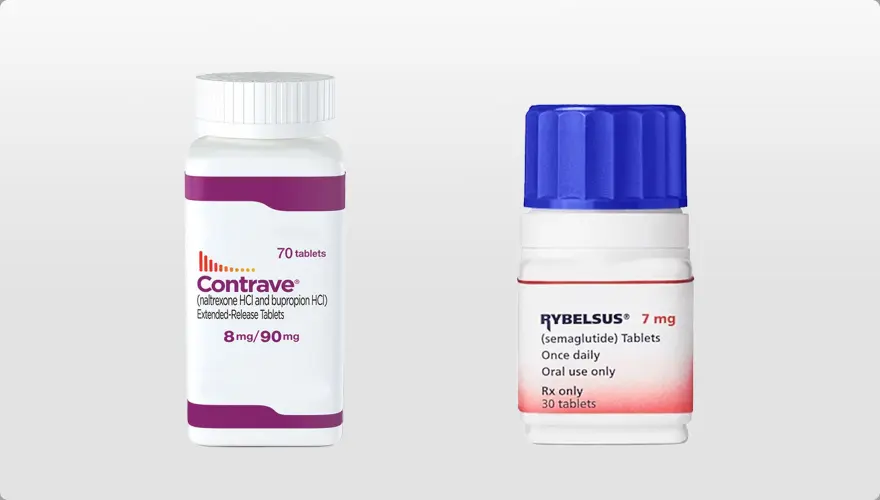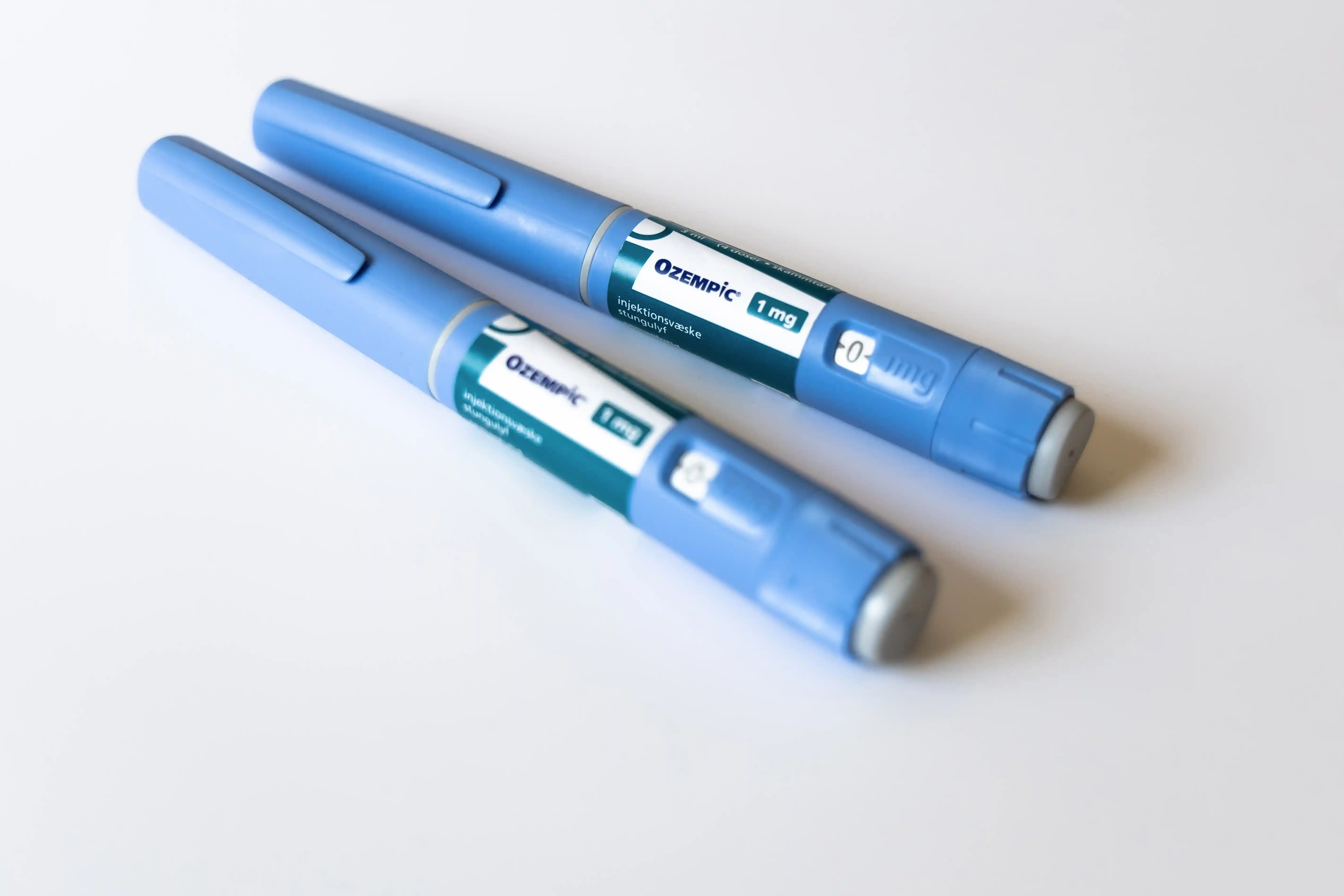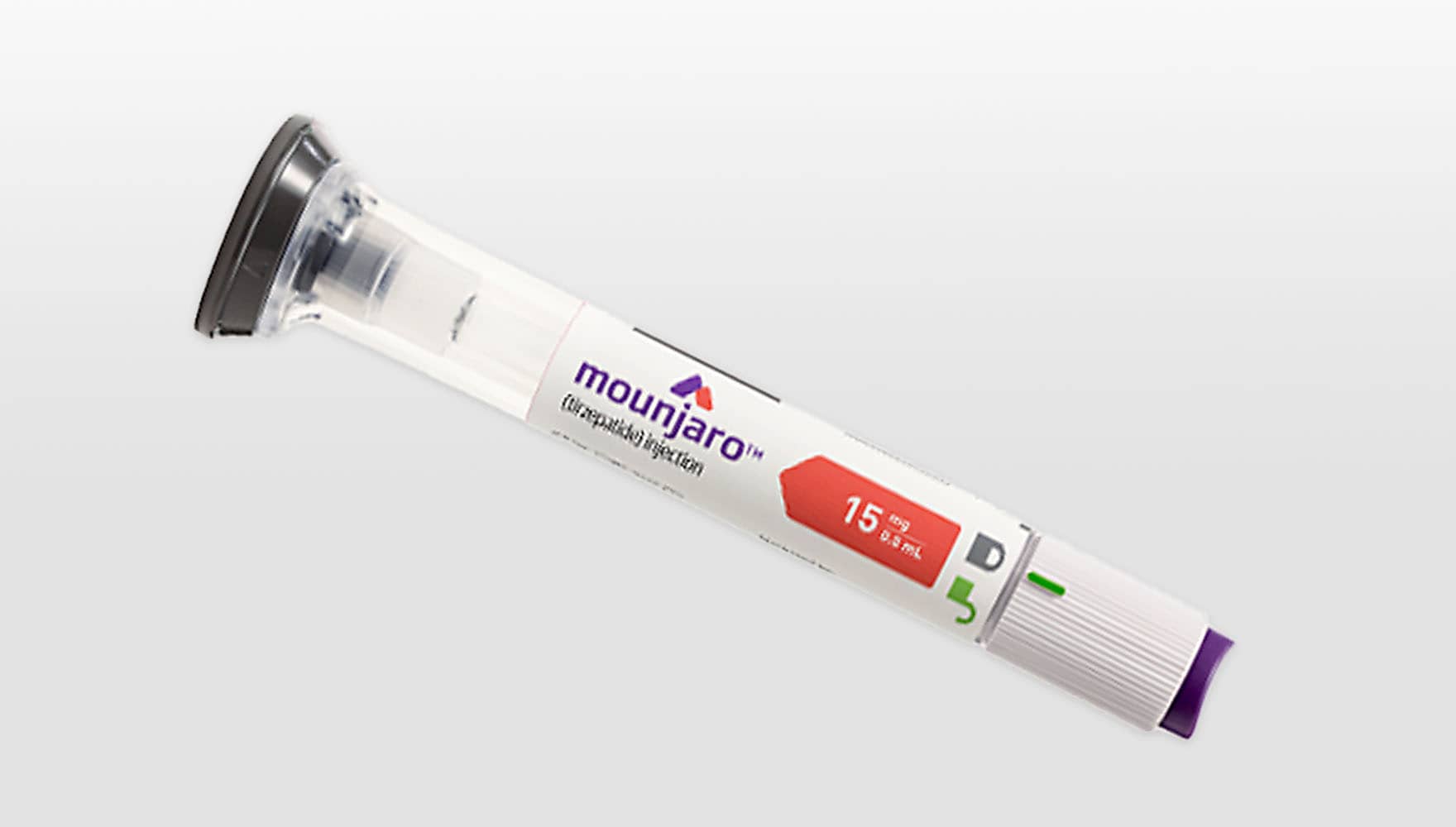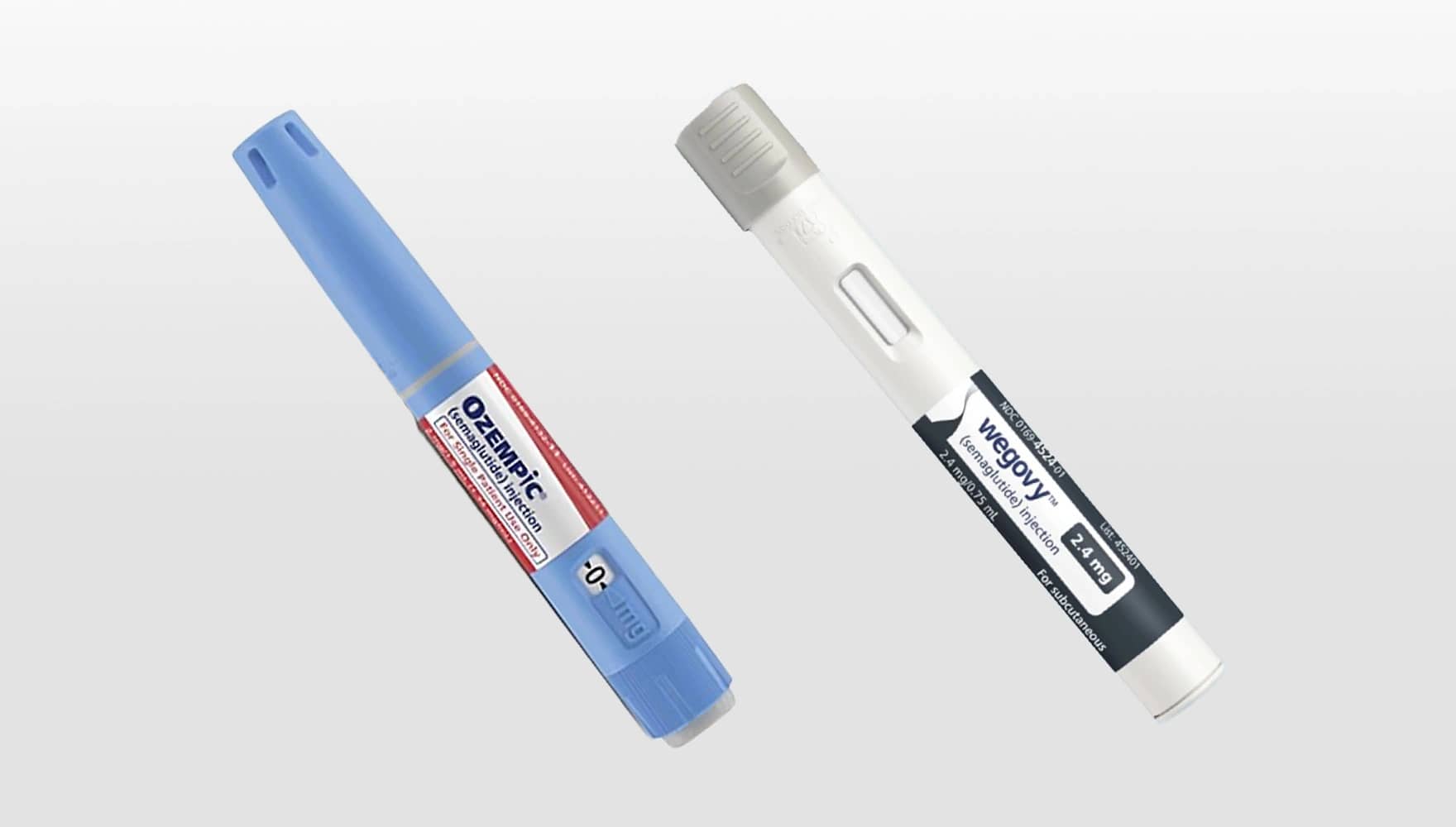Weight loss is a common goal for millions of people worldwide, and using a prescription weight loss aid in this process has been gaining popularity. Regarding weight loss, diet and exercise are often the first steps healthcare providers recommend. However, some individuals struggle to lose weight through lifestyle changes alone, especially if they have underlying medical conditions such as obesity or diabetes. In these cases, Contrave and Rybelsus are two prominent options. This comprehensive analysis will delve into their mechanisms of action, effectiveness, administration, side effects, and pricing in Canada.
How Does Contrave and Rybelsus Work?
Contrave and Rybelsus target different mechanisms in the body to promote weight loss, making them suitable for specific individuals.
Contrave
Contrave is a medication with two active ingredients: bupropion and naltrexone. Naltrexone is typically used in the treatment of alcohol and opioid addiction, while bupropion is an antidepressant that also aids in smoking cessation. These two active ingredients work together to influence the brain pathways that are responsible for cravings and hunger, which reduces cravings and increases fullness cues. This is what allows patients to lose weight.
Rybelsus
Opposite to Contrave, Rybelsus is a medication with the active ingredient, Semaglutide, a glucagon-like peptide-1 (GLP-1) agonist. Rybelsus mimics a naturally occurring hormone, GLP-1, that regulates appetite by slowing down the emptying of the stomach, making you feel fuller for longer and reducing appetite. This medication also stimulates insulin production, making it a strong tool in regulating blood sugar.
Which Medication is More Effective - Contrave or Rybelsus?
Both Contrave and Rybelsus have shown effectiveness in weight loss, but individual factors influence the best choice. It is recommended with both weight loss drugs to maintain a healthy diet and regular exercise routine.
Contrave Effectiveness
Contrave has been studied in clinical trials and has shown modest results in aiding weight loss. On average, individuals who take Contrave, along with diet and exercise, can expect to lose about 5-10% of their starting body weight throughout 12 to 16 weeks. However, effectiveness varies from person to person, and some may experience greater success with lifestyle changes while others may not respond as well.
Contrave might be suitable for those struggling with cravings and low energy, as it works by addressing these underlying factors. It has also been shown to be effective in reducing the risk of relapse after weight loss.
Rybelsus Effectiveness
Rybelsus has been gaining attention as a weight loss drug because of its success in clinical trials. Some studies have shown that individuals taking Rybelsus could lose between 10-15% of their body weight, depending on the dosage and duration of treatment. For patients with type 2 diabetes, this prescription medication not only improves blood sugar control but also supports weight management. Rybelsus tends to produce more significant weight loss compared to Contrave, particularly in individuals with diabetes or metabolic issues
Rybelsus may be a good option for people with type 2 diabetes or who want to manage their blood sugar levels. It can also help reduce the risk of heart disease and stroke.
Administration of Contrave and Rybelsus
These prescription medications are administered differently, which can play a role in their effectiveness and convenience for patients:
- Contrave: Taken orally as a tablet, typically twice daily. The dosage is gradually increased over four weeks to reduce the risk of side effects. Since it needs to be taken regularly, following the prescribed schedule is crucial for achieving optimal weight loss results.
- Rybelsus: Rybelsus is the first GLP-1 receptor agonist available in oral form. It is recommended to be taken once daily, ideally on an empty stomach, at least 30 minutes before eating. Its oral administration makes it a convenient alternative to injectable GLP-1 medications, such as Ozempic. Adherence to proper timing is important to maximize weight loss and body weight reduction.
Side Effects Comparison: Contrave vs. Rybelsus
As with any weight loss medication, both Contrave and Rybelsus come with a risk of side effects, and these may impact the decision of which drug is suitable for a particular individual.
Contrave Side Effects
- Nausea
- Constipation
- Dry mouth
- Headache
- Insomnia
- Increased blood pressure
More serious side effects may include seizures, especially in people with a history of seizure disorders, and an increase in blood pressure. These risks should be considered when discussing weight management strategies with a healthcare provider.
Rybelsus Side Effects
- Nausea
- Vomiting
- Diarrhea
- Constipation
- Pancreatitis (though rare)
The side effects of Rybelsus are usually gastrointestinal in nature, and they tend to be more pronounced at the beginning of treatment. While Rybelsus does not have the same risk of increasing blood pressure as Contrave, it can cause low blood sugar (hypoglycemia) in people who take it with other diabetes medications. Additionally, there is a small risk of developing thyroid tumors, which has been observed in animal studies.
Pricing of Contrave and Rybelsus in Canada
Price can be a significant factor in choosing between Contrave and Rybelsus. Here’s a general guide to their pricing:
- Dosage: Higher dosages can lead to higher costs.
- Pharmacy: Prices may vary between pharmacies, prices also vary between online pharmacies and retail pharmacies.
- Online weight loss clinics: Some new healthcare companies, like Felixforyou, Livewell, Science and Humen, and DooU, offer Contrave for $300-400 per prescription. Rybelsus tends to be on the more affordable side, at around $150-$225.
- Insurance Coverage: Your insurance may not cover the cost of this medication for the weight loss program.
For the most accurate and up-to-date pricing, consider:
- Contacting Your Insurance Provider: Check what’s covered for both weight loss medications or you need to apply for a special authorization program.
- Comparing Prices: Look at different pharmacies and weight loss programs.
- Exploring Generic Options: If available, generics might offer cost savings.
Combining Contrave and Rybelsus
Taking Contrave and Rybelsus together is generally not recommended for weight management due to the increased risk of side effects and potential overdose.
Additionally, there is limited data on the safety or effectiveness of using these drugs together. If someone does not respond to one weight loss drug, they may switch to another under medical supervision rather than combining them.
Switching Between Contrave and Rybelsus
Understandably, switching from Contrave to Rybelsus (or vice versa) might be a consideration if a patient is not seeing the desired weight loss results; However, switching between medications should be done under the guidance of a healthcare provider. Your doctor will consider factors such as your medical history, response to the medication, and any side effects experienced when deciding if a switch is appropriate. Each weight loss medication can target different aspects of body weight regulation, so a tailored approach to weight management is essential. Individual responses can vary, and switching might not be necessary or beneficial.
Remember, it's crucial to consult with a healthcare professional to determine the best medication for your specific needs and goals.
















































